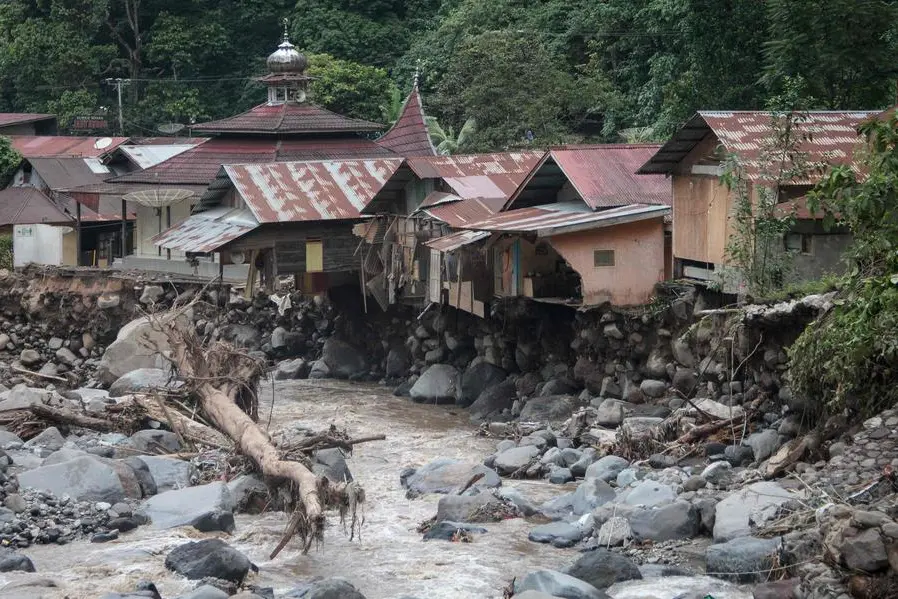PHOTO
The number of people killed by flash floods and cold lava flow from a volcano in western Indonesia over the weekend has risen to 41 with 17 more missing, a local disaster agency official told AFP Monday.
Hours of heavy rain caused large volcanic rocks to roll down one of Indonesia's most active volcanos into two districts on Sumatra island Saturday evening, while flooding inundated roads, homes and mosques.
"Data as of last night, we recorded 37 dead victims... But from this morning it has grown again, the figure reached 41 (dead)," Ilham Wahab, West Sumatra disaster mitigation agency official, told AFP.
Rescuers were searching for 17 still missing, three in Agam district and 14 in Tanah Datar, both the worst-hit areas of the flood and home to hundreds of thousands of people, he said.
Abdul Malik, head of the search and rescue agency in provincial capital Pandang, told reporters Sunday that the bodies retrieved included two children -- a three-year-old and an eight-year-old.
Ilham encouraged "people to evacuate to relatives' places, which are safer" than tent shelters in heavy rains.
"We are focused on first, searching and rescuing the victims, second, protecting the evacuees, protecting the vulnerable people," he said.
West Sumatra Governor Mahyeldi Ansharullah told reporters on Monday that around 130 people had evacuated to an elementary school in Agam, while more than 2,000 people were evacuated to several places in Tanah Datar.
Roads in the districts were turned into rivers, with mosques and houses damaged.
Heavy rains inundated neighbourhoods with muddy flood waters and swept vehicles into a nearby river, while volcanic ash and large rocks rumbled down Mount Marapi.
Cold lava, also known as lahar, is volcanic material such as ash, sand and pebbles carried down a volcano's slopes by rain.
- 'Have mercy' -
Authorities sent a team of rescuers and rubber boats to look for the missing victims and to transport people to shelters.
The local government set up evacuation centres and emergency posts in several areas of Agam and Tanah Datar.
The national disaster mitigation agency, or BNPB, said 84 homes, 16 bridges and two mosques were damaged in Tanah Datar, as were 20 hectares (50 acres) of rice fields.
Survivors recounted their horror when the flooding and rockfall began.
"I heard the thunder and the sound similar to boiling water. It was the sound of big rocks falling," housewife Rina Devina told AFP, adding that three of her neighbours were killed.
"It was pitch black, so I used my cellphone as a flashlight. The road was muddy, so I chanted 'God, have mercy!' over and over again," she said of her evacuation to a local official's office.
Dwikorita Karnawati, head of Indonesia's meteorology, climatology and geophysics Agency (BMKG), told reporters Monday that West Sumatra was a "unique location" because in parts of the province, rain could fall almost all year round.
"So the potential for flood and landslide are always present," she said.
Indonesia is prone to landslides and floods during the rainy season.
In 2022, about 24,000 people were evacuated and two children were killed in floods on Sumatra island, with environmental campaigners blaming deforestation caused by logging for worsening the disaster.
Trees act as natural defences against floods, slowing the rate at which water runs down hills and into rivers.
Marapi's last major eruption took place in December and spewed an ash tower about 3,000 metres (9,800 feet) into the sky, taller than the volcano itself.
At least 24 climbers, most of them university students, died in the eruption.





















